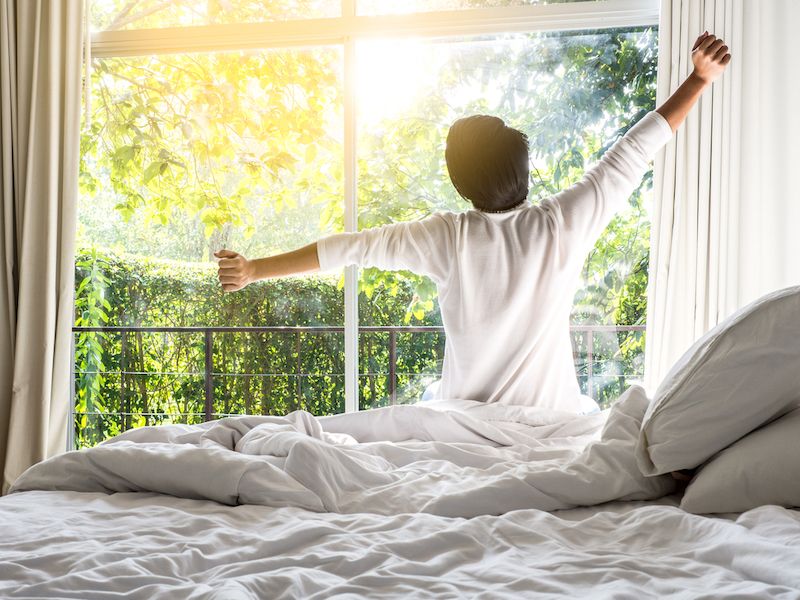
Worried about depression in these lockdown times? Wake up an hour earlier every day and you’ll reduce your risk.
In fact, having one less hour of shut eye in the morning lowers your chances of major depression by as much as 23 percent, researchers have discovered.
It’s been known for some time that there’s a link between sleeping habits and mental wellbeing—night owls are twice as likely to suffer from depression as early risers, or larks, for instance—but it’s been difficult to get a more detailed picture, partly because mood disorders can disrupt sleep patterns.
Researchers from the University of Colorado at Boulder wanted to dig deeper, and so they tracked the mental wellbeing and sleep patterns of 840,000 people. Around a third identified themselves as larks and just 9 percent were owls, with the rest being neither owl nor lark, going to bed around 11pm and rising at 6am, with a sleep mid-point of around 3am.
Our sleeping habits seem to be determined by our genes, the researchers found, and those with the genetic variants that make them early risers are also less likely to suffer from depression. A person who would normally go to bed at midnight but instead goes an hour earlier—and as a consequence rises an hour earlier—cuts their risk for depression by 23 percent. Those who push back their sleeping habits by two hours reduce their risk by 40 percent.
The researchers aren’t sure why this happens, but they suspect it could be to do with the amount of light exposure we get. Early risers just get more daylight.
But changing your sleeping habits can be difficult, especially if it's down to our genes. Lead researcher Celine Vetter offers a few suggestions to help. “Keep your days bright and your nights dark. Have your morning coffee on the porch. Walk or ride your bike to work if you can and dim those electronics in the evening.”
(Source: JAMA Psychiatry, 2021; doi: 10.1001/jamapsychiatry.2021.0959)